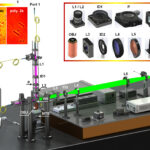Early childhood education has an important role in forming and developing young minds. Professional development and constant learning are critical for those working in this sector. WSQ diploma courses offer a structured path for enhancing skills and knowledge in early childhood education. This article explores how these diploma courses contribute to professional development and elevate the standards of early childhood education.
1. Providing Comprehensive Knowledge and Skills
WSQ diploma courses in early childhood education are designed to equip educators with a deep understanding of child development theories and practices. The curriculum covers various aspects of early childhood education, including pedagogical strategies, child psychology, and curriculum planning. This comprehensive knowledge helps educators to create effective learning environments and implement age-appropriate teaching methods. By gaining a solid foundation through these courses, professionals are better prepared to address the diverse needs of young children and support their growth effectively.
2. Enhancing Classroom Management Techniques
Effective classroom management is crucial for creating a positive learning environment. WSQ diploma courses focus on equipping educators with practical strategies for managing classroom dynamics, promoting positive behaviour, and handling conflicts. Through interactive training and real-world scenarios, educators learn techniques to maintain an organised and engaging classroom. These skills are essential for fostering a supportive atmosphere where children feel safe and motivated to learn, ultimately enhancing their educational experience.
3. Improving Communication and Collaboration Skills
Communication and collaboration are key components of early childhood education. WSQ diploma courses emphasise the importance of effective communication with children, parents, and colleagues. Educators learn to build strong relationships with families, address concerns, and provide constructive feedback. Additionally, the courses foster skills for working collaboratively with other professionals, such as special educators and healthcare providers. These enhanced communication and collaboration skills enable educators to work more effectively as a team, leading to better outcomes for children.

4. Adapting to Emerging Trends and Practices
Early childhood education is constantly evolving with new research and practices. WSQ diploma courses are designed to keep educators up-to-date with the latest trends and developments in the field. Topics such as technology integration, inclusive education, and early intervention strategies are covered to ensure educators are well-informed about contemporary practices. Staying current with emerging trends helps professionals to adapt their teaching methods and incorporate innovative approaches into their practice, ultimately benefiting the children they teach.
5. Supporting Career Advancement and Specialisation
Earning a diploma in early childhood education can open doors to various career opportunities and specialisations. WSQ diploma courses provide a recognised qualification that enhances an educator’s credentials and opens up pathways for career advancement. Professionals can pursue specialised roles, such as curriculum developers, educational coordinators, or early intervention specialists. This advancement not only boosts their career prospects but also contributes to the overall improvement of the quality of early childhood education.
6. Fostering a Reflective Practice
Reflective practice is a critical aspect of professional development in early childhood education. WSQ diploma courses encourage educators to reflect on their teaching practices, assess their effectiveness, and identify areas for improvement. Through reflective exercises and feedback sessions, professionals develop a deeper understanding of their strengths and areas for growth. This ongoing process of self-evaluation and improvement leads to enhanced teaching practices and a commitment to continuous learning.
7. Building Professional Networks and Support Systems
Enrolling in WSQ diploma courses provides educators with opportunities to connect with peers, mentors, and industry experts. These professional networks are valuable for sharing experiences, exchanging ideas, and seeking support. Building a strong network of colleagues and mentors can offer guidance and resources throughout an educator’s career. Such connections contribute to a collaborative and supportive professional community, which is beneficial for personal and professional growth.
8. Promoting a Holistic Approach to Early Childhood Education
WSQ diploma courses emphasise a holistic approach to early childhood education, focusing on the overall development of children. Educators are trained to consider various aspects of child development, including cognitive, emotional, social, and physical growth. This holistic perspective ensures that teaching practices address all areas of a child’s development, leading to a well-rounded educational experience. By adopting a holistic approach, educators can better support children’s diverse needs and foster their overall well-being.
9. Meeting Regulatory and Accreditation Standards
Compliance with regulatory and accreditation standards is essential for maintaining quality in early childhood education. WSQ diploma courses are designed to meet the requirements set by regulatory bodies and accreditation agencies. By completing these courses, educators ensure that they are meeting industry standards and providing high-quality education. This adherence to standards not only benefits children but also enhances the credibility and reputation of early childhood education programmes.
10. Enhancing Job Satisfaction and Professional Fulfilment
Pursuing a WSQ diploma in early childhood education can lead to job satisfaction and professional fulfilment. The knowledge and skills gained through these courses enable educators to make a positive impact on children’s lives and contribute to their development. Achieving a recognised qualification and advancing in their careers provides a sense of accomplishment and motivation. This enhanced job satisfaction ultimately leads to a more committed and passionate workforce in early childhood education.
In conclusion, WSQ diploma courses play a significant role in enhancing professional development in early childhood education. By providing comprehensive knowledge, improving classroom management, and supporting career advancement, these courses contribute to the overall quality of early childhood education. Educators who invest in their professional development through WSQ diploma courses are better equipped to support the growth and development of young children.
For more information, contact Asian International College today.











